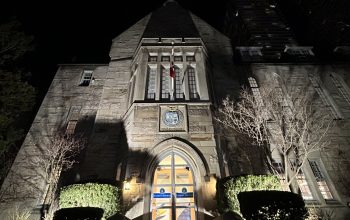Agreement comes days after Unit 3 members voted 91% in favour of a strike mandate
Aaron Panciera NEWS EDITOR
Photo: CUPE3902.org.
A tentative agreement has been reached between the University of Toronto (U of T) and the Canadian Union of Public Employees (CUPE) Local 3902, Unit 3 after U of T contract academic workers voted 91% in favour of a strike mandate. The agreement was announced November 25, one day after negotiations were reengaged.
U of T and CUPE 3902 have been in negotiations for a renewal collective agreement as the current collective agreement is set to terminate at the end of the year. Unit 3 represents over 9,500 contract academic workers at U of T, including non-student sessional lecturers, writing instructors, and music professionals.
The main points of contention have been over “the University of Toronto’s process for recruiting and hiring new teaching-stream and tenure-stream faculty appointments,” the university’s website states.
However, CUPE 3902 representatives see this issue in a slightly different light.
“The main issue faced by instructors is the reliance of post-secondary institutions on precarious labour, a situation that is unfair to students and teachers alike,” CUPE 3902 wrote in a statement on its website. “At the University of Toronto, Sessional Lecturers deliver over 20% of all undergraduate teaching, yet earn less and have little to no job security.”
It is important to note that this vote did not mean a strike was imminent. Instead, it gives the union further leverage when bargaining with the university, as negotiations have been ongoing for the past four months.
“The members of Unit 3 haven’t voted to strike, but they have indicated that they’re willing to strike,” the University of Toronto Students’ Union (UTSU) wrote in a statement on its Facebook page.
Negotiations were stalled over the union’s insistence that the university convert at least eight sessional course instructors to full-time teaching and tenure-stream faculty appointments each year. U of T has claimed that this contradicted its hiring policy “where sessional lecturers apply for advertised teaching-stream and tenure-stream faculty appointments in competition with all other applicants.”
Jess Taylor, Spokesperson for the Unit 3 Bargaining Team, acknowledged this in her statement on the CUPE 3902 website. However, the union disagreed with the university on this policy.
“While undergraduate tuition continues to rise and the University of Toronto attracts ever-increasing numbers of foreign students, it refuses to commit to long-term job security for the people delivering many of its undergraduate courses,” the CUPE 3902 statement reads.
Job security was not the only issue of contention, however, as debate over wages had been ongoing. Pamela Arancibia, CUPE 3902 Chair, claims that sessional lecturers have a minimum salary of $15,000 per course, whereas faculty members earn at least $23,000 per course.
The exact nature of this agreement is still unknown as the CUPE statement reads, “Details of the agreement as well as the process for ascension and ratification will be forthcoming.”
Nonetheless, students can be happy to know that U of T’s contract sessional lecturers will still be teaching by the time 2018 comes around.




